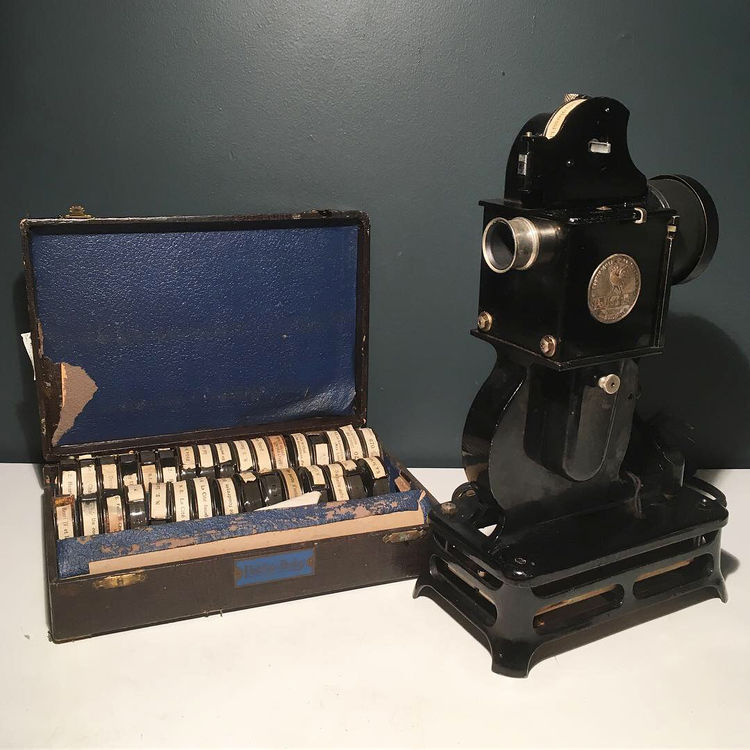| Welcome to Sprocket School! This project is maintained by volunteer editors. Learn more about how this works. |
9.5mm: Difference between revisions
Jump to navigation
Jump to search
JesseCrooks (talk | contribs) No edit summary |
No edit summary |
||
| (One intermediate revision by one other user not shown) | |||
| Line 2: | Line 2: | ||
Another unique feature of the format is ability to pause the film on intertitles in order to save footage. A notch was cut on a title frame, which would trigger a lateral tensioner below the gate. This caused the claw to retract for a short period, leaving the same frame in the gate until it reengaged. | Another unique feature of the format is ability to pause the film on intertitles in order to save footage. A notch was cut on a title frame, which would trigger a lateral tensioner below the gate. This caused the claw to retract for a short period, leaving the same frame in the gate until it reengaged. | ||
===Resources=== | |||
[[Media:Pathe Baby Manual.pdf|Pathé Baby Projector Manual]] | |||
<gallery widths=500px heights=500px mode=packed> | <gallery widths=500px heights=500px mode=packed> | ||
| Line 10: | Line 14: | ||
[[Category:Film prints]] | [[Category:Film prints]] | ||
[[Category:Film gauges]] | [[Category:Film gauges]] | ||
[[Category:Small gauge film]] | |||
Latest revision as of 13:10, 21 April 2020
9.5mm is a non-theatrical format released by Pathé in 1922. The format is notable for its use of a single perforation located in the center of the frame. This maximized the surface area that could be used for the printed image, but increased the risk of damage to the center of the picture area.
Another unique feature of the format is ability to pause the film on intertitles in order to save footage. A notch was cut on a title frame, which would trigger a lateral tensioner below the gate. This caused the claw to retract for a short period, leaving the same frame in the gate until it reengaged.
Resources
-
Pathé Baby 9.5mm projector with a case of films in their original cartridges.
-
9.5mm film with a notch to pause the projector on the intertitle.

